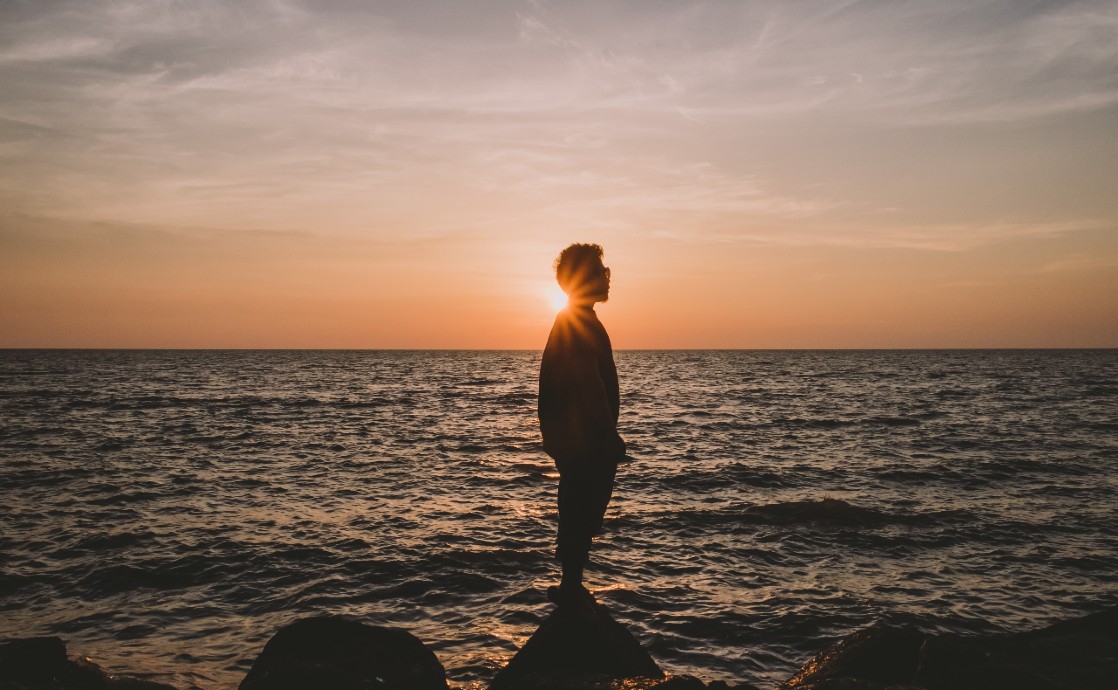The views expressed in our content reflect individual perspectives and do not represent the authoritative views of the Baha'i Faith.
When I first learned about the Baha’i Faith, its beautiful principles attracted me – strongly. I really had a difficult time with the thought of giving up alcohol, however.
Not that I was addicted at age 19, but drinking was what my friends and I often did together socially, and I knew giving it up would mean losing many of those friends.
The Baha’is in the community lovingly and patiently taught me more about the Faith, and gradually I came to believe Baha’u’llah was a true messenger from God. Eventually, as I learned more and became totally convinced of the truth of the Faith, drinking alcohol diminished in importance and I gave it up completely, even before I became a Baha’i.
With a different view of life based on the teachings of the Baha’i Faith, I have never found it difficult to stop using alcohol and, in fact, I’m grateful to Baha’u’llah that we have this great protection and freedom. As to the loss of old friends, yes, some are gone – but I gained a whole lot of new ones from all around the world, as I am now part of a global Baha’i family!
So in a discussion with an acquaintance some time ago, I mentioned that I’m a Baha’i, and asked him if he had ever heard of the Baha’i Faith.
“Yes,” he replied, “I know that Baha’is don’t drink, and that’s enough for me! Don’t you know that banning alcohol has been tried and it doesn’t work!” He made it clear that that was the end of the discussion.
This, no doubt, reflects the thinking of some people when they learn about the Baha’i Faith and its prohibition on the use of alcohol. That prohibition, by the way, applies only to Baha’is, who voluntarily accept the Baha’i laws and never try to impose them on others.
RELATED: My Alcoholic Father’s Embrace
Despite this fact, that Baha’i law prohibiting alcohol can present a barrier for some people in further examining the Faith, as drinking is an important part of the lives of hundreds of millions throughout the world, and is ubiquitous for social events, celebrations, and many other occasions. Many use alcohol for personal reasons, such as relieving stress and anxieties. Also, some people like the mind-altering feelings that drinking brings on, or just enjoy the taste of alcohol as part of the culinary experience.
Unfortunately, alcohol is an addictive substance, and the alcoholism it causes generates a great deal of its use. Alcohol brewers and distillers have often said that 20 percent of their customers buy 80 percent of their product.
Despite the various reasons for drinking alcohol, no serious person would deny that it creates massive negative social and personal impacts for multitudes in nearly every country of the world. Volumes upon volumes have been written describing these problems, which include deaths from accidents and several serious mental and physical diseases, broken families, crime, livelihood disruptions, and many other associated problems. For an overview of usage for the U.S. and globally see: Alcohol Facts and Statistics | National Institute on Alcohol Abuse and Alcoholism (NIAAA) (nih.gov).
Our societies need to address the devastating effects of alcoholism, a disease that plagues humankind. Who can possibly rid us of this sickness and bring about solutions and permanent healing?
Abdu’l Baha, the son of Baha’u’llah, the Prophet Founder of the Baha’i Faith, wrote that God’s messengers to humanity act as “skilled physicians” who provide a “remedy for the ailing body of the world:”
Every divine Manifestation is the very life of the world, and the skilled physician of each ailing soul. The world of man is sick, and that competent Physician knoweth the cure, arising as He doth with teachings, counsels and admonishments that are the remedy for every pain, the healing balm to every wound. It is certain that the wise physician can diagnose his patient’s needs at any season, and apply the cure. Wherefore, relate thou the Teachings of the Abha Beauty (Baha’u’llah) to the urgent needs of this present day, and thou wilt see that they provide an instant remedy for the ailing body of the world. Indeed, they are the elixir that bringeth eternal health. …
From a Baha’i perspective, Baha’u’llah’s advent represents the newest revelation from one of those skilled physicians:
Baha’u’llah is the real Physician. He has diagnosed human conditions and indicated the necessary treatment. The essential principles of His healing remedies are the knowledge and love of God, severance from all else save God, turning our faces in sincerity toward the Kingdom of God, implicit faith, firmness and fidelity, loving-kindness toward all creatures and the acquisition of the divine virtues indicated for the human world. These are the fundamental principles of progress, civilization, international peace and the unity of mankind. These are the essentials of Baha’u’llah’s teachings, the secret of everlasting health, the remedy and healing for man. …
Baha’is believe that Baha’u’llah brought what is needed to solve the problems of the world. To that end, he has prohibited any use of alcohol except for certain medicinal reasons as prescribed by a doctor:
Beware lest ye exchange the Wine of God for your own wine, for it will stupefy your minds, and turn your faces away from the Countenance of God, the All-Glorious, the Peerless, the Inaccessible. Approach it not, for it hath been forbidden unto you by the behest of God, the Exalted, the Almighty.
Abdu’l-Bahá explained that the reason for prohibiting the use of alcoholic drinks is because “alcohol leadeth the mind astray and causeth the weakening of the body.” We now know, medically, that alcohol kills brain cells and causes many acute and chronic illnesses.
Yet some might ask the question, “Yes, there is no doubt that alcohol causes severe problems for many, but isn’t a complete ban going too far? What about moderate drinking?”
There are several responses to such a question, and here are just two of them. First, how could we effectively solve the myriad problems associated with alcohol use and abuse by advising people to drink only in moderation? Who defines moderation or the lack of it?
Alcoholism, the science informs us, is caused by a combination of genetic, cultural, and environmental factors, and individuals, gender, and even ethnic groups widely vary as to their susceptibility. As well, alcohol abuse counselors will readily tell stories of any number of their clients who deny they have a drinking problem, that they are moderate drinkers and they could quit drinking at any time, right up to the point where things fall apart for them. Also, even in moderate amounts, alcohol usage can result in serious interpersonal and/or physical injuries due to things said or actions taken that lack good judgment due to even partial impairment. So clearly, trying to solve these many problems by encouraging moderation is doomed to failure.
Secondly, and most importantly, for those who accept the truth of the teachings and laws of the messenger of God, the Baha’i teachings promise us a different kind of life – a life filled with a sense of purpose and faith based on the certitude of truth, of striving to be of service to others, of contributing to the advancement of society and our communities, of knowing there is divine assistance as we meet the challenges of life, and of spiritual enlightenment from the writings of the latest revelation from God.
RELATED: Why Do Religions Have Laws?
Certainly, in living such a life, there is no need of any intoxicant that reduces the full potential of our minds or bodies:
They that immerse themselves in the ocean of His utterances should at all times have the utmost regard for the divinely-revealed ordinances and prohibitions. Indeed, His ordinances constitute the mightiest stronghold for the protection of the world and the safeguarding of its peoples.
When a person makes a conscious effort to merge their will with the laws and teachings of Baha’u’llah, it brings about great benefits from a merciful, forgiving and compassionate Lord. Indeed, one gets “high” on the richness and beauty of life! In one of the prayers of Baha’u’llah, we recite: “Thy love, O my God hath enriched me ….”
As a Baha’i, I’ve learned how absolutely true that verse is.
















Comments
Sign in or create an account
Continue with Googleor